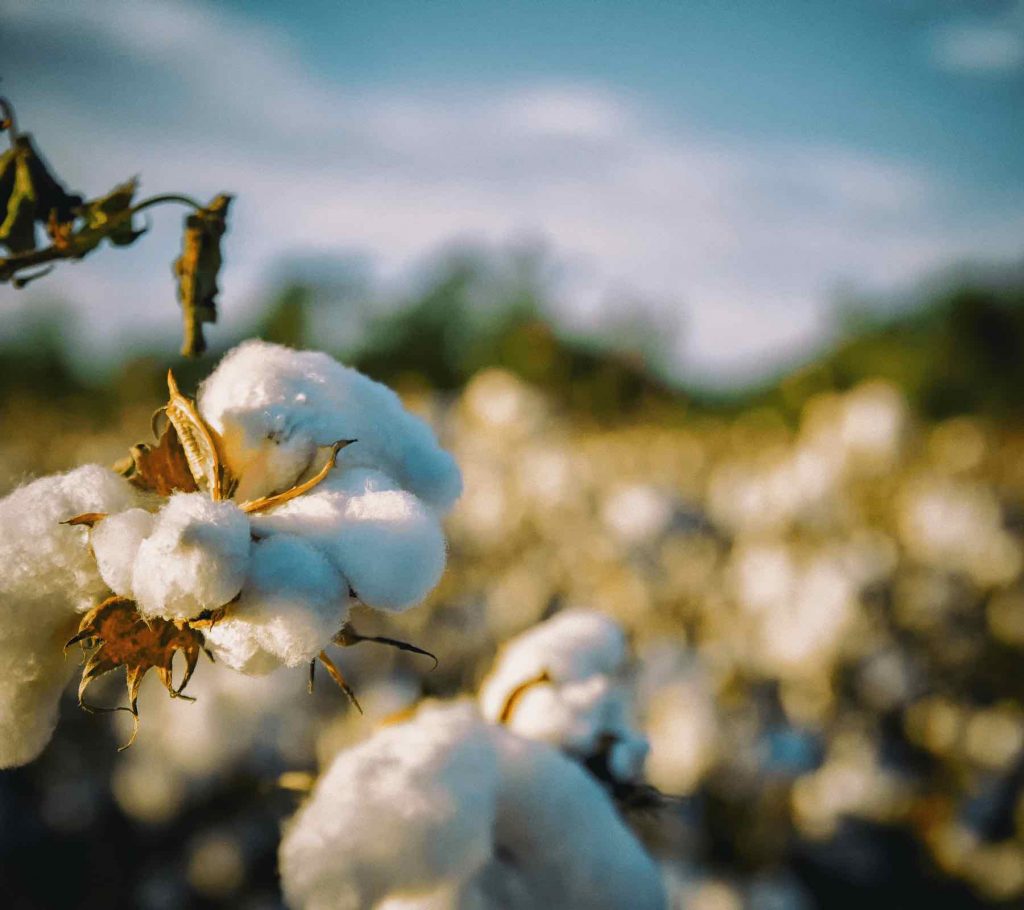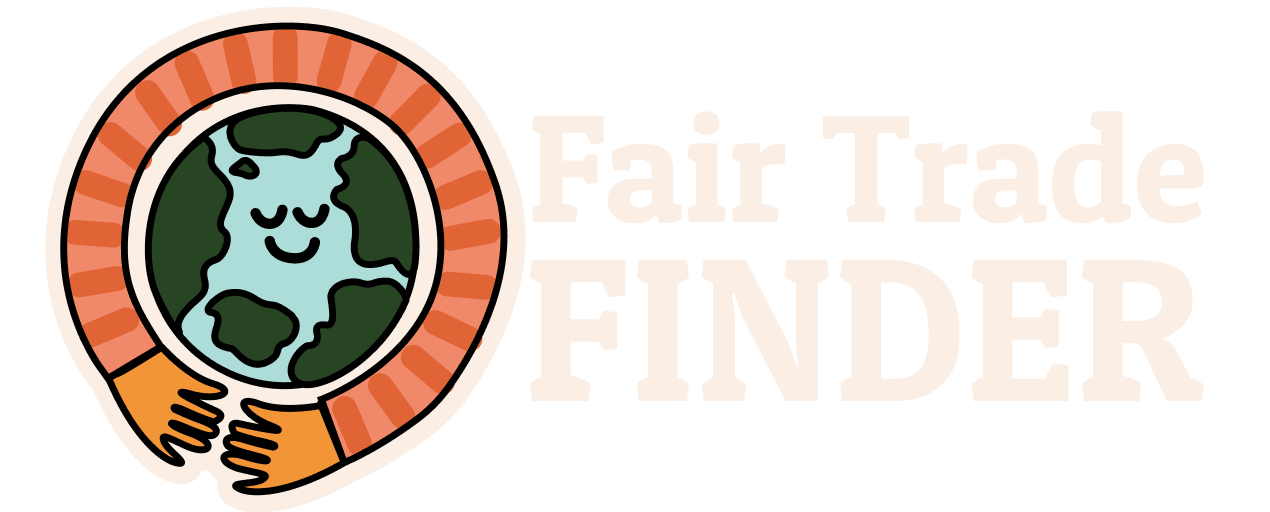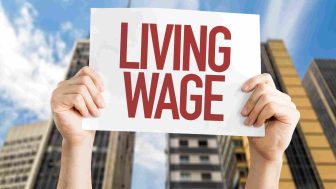
What is Fair Trade?
Fair Trade helps establish baseline economic, environmental and social standards that all workers have the right to enjoy. These standards protect workers’ rights and make sure they are fairly compensated for their work. They also protect the environment and supply chains from irresponsible practices.
Why is Fair Trade Important?
Fair Trade helps farmers and workers in developing countries build mutually beneficial business relationships, obtain livable wages, and improve social and environmental standards. Fair trade creates a system to ensure farmers, plantation workers and factory workers have safe work environments and are paid living wages.
Buying Fair Trade certified products ensures that the people who cultivate and manufacture the products we enjoy are paid a living wage, have essential services like education and health care and are provided with safe working conditions.
Fair Trade products are also usually organic and healthier for consumers because they are manufactured in facilities that prohibit the use of toxic chemicals and pesticides.
How Does the Fair Trade System Work?
The Fair Trade system is structured around groups that represent farmers and workers throughout the world. Over 1.7 million farmers and laborers were represented by Fairtrade groups as of 2020.
These producer organizations are similar to labor unions or cooperatives, and are the most important part of the Fair Trade system.
What Benefits Does Fair Trade Provide?
Price Control
The Fair Trade system works to stabilize pricing so that workers can focus on developing their products and services over the long term. This is similar to how countries like the United States and Europe subsidize farmers.
Price controls attempt to cover the average costs of developing their crops sustainably, which is important when the market price drops significantly.
Living Wages for Workers
Workers within the Fairtrade system are historically paid extremely low wages for their very hard work. They typically live in countries without strong labor laws and are exploited for their services.
The Fair Trade system pays producer organizations additional money, called a Fairtrade Premium, that is added to the base selling price. Fairtrade premiums provide workers with essential necessities, services, business and community projects. Projects include job training, education, housing and health care for workers and their children.
Safe and Fair Working Conditions
The Fair Trade system prohibits discrimination, sexual assualt, unsafe factory and farm conditions, forced labor, and child labor.
Long Term Planning
The Fair Trade system gives workers have the ability to prepare more for the future since they have more security and stronger ties with buyers.
Organic Products
In addition, Fairtrade products are usually organic, although this is not a requirement. Farmers are urged to switch to organic farming methods and are encouraged to eliminate the usage of genetically engineered animals and plants (GMOs). Farmers also learn how to keep the soil healthy, and responsible waste management.
Fair Trade Statistics
The Fair Trade statistics data below comes from Fairtrade, a non-profit organization that encompasses approximately 1.8 million farmers and employees in the Global South. The group works to provide acceptable working conditions, fair pricing, and fairer trade terms for farmers to prosper and live sustainably.
1 – In 2017, Fairtrade certified products sold about 9.5 billion dollars. This is a 10x increase since 2004. However, this is still only 0.02 percent of the world’s total consumer spending of 44 trillion USD.
2 – The need for Fair Trade products and services has never been greater. Sweatshops are where a lot of our everyday items are made. Laborers in some sweatshops that produce goods like food, clothing and shoes work 100 hours a week for extremely low pay in an atmosphere where they are subjected to physical and sexual abuse.
3 – Over 40 million individuals are thought to be enslaved in modern-day slavery across the world. There are ten million children among them. At least 100 different products have been connected to slavery, including coffee, chocolate, cotton, shoes, toys, and electronics.
4 – Child labor affects 152 million children worldwide. Almost half of these youths (73 million) are forced to work in dangerous conditions.
5 – Fairtrade certified producer groups employed around 1.9 million farmers and laborers as of 2020.
6 – As of 2020, Fairtrade included 1,880 fairtrade certified producer organizations in 71 countries.
7 – As of 2019, Latin America and the Caribbean accounted for 50% of fairtrade certified producer groups, followed by Africa and the Middle East (35%), and Africa (15%).
8 – Coffee had the highest number of Fairtrade workers in 2019, with 838,116 out of 1.9 million total workers.
9 – Bananas, seed cotton, and cane sugar had the lowest percentages of fairtrade workers in 2019, each with only 2%.
10 – Coffee, cocoa and bananas generated the highest Fairtrade payment premiums in 2020. Coffee generated €86.31 million, cocoa €37.09 million, and bananas €35.84 million.
11 – More than 2.3 million hectares of farm land and plantations were under Fairtrade production in 2016. Cocoa, flowers, bananas, and coffee are among the crops with the highest land share.
13 – Fair trade small producer premiums are much greater than hired labor premiums. A total of 137.4 million in fair trade premiums were recorded by small producer associations in 2016. This means that the farmers and workers are profiting from the products and services they create.
12 – Organic products accounted for 59% of fairtrade banana sales, 57% of coffee sales, 24% of cane sugar sales, 23% of tea sales, and 17% of cocoa sales.
14 – Small producer groups spent 48% of their Fairtrade premiums on training, tools, inputs, financing, finance, and direct payments to members in 2015-16. 18% went to processing, packing, storage, and crop gathering. This increases the value of farmer crops and benefits members. 6% of Fairtrade premiums went to community programs.
15 – In 2015-16, employees spent 63% of their fairtrade profits on worker necessities such as education, housing, healthcare, credit, and direct payments. 20% went to major community initiatives like schools and hospitals. 6% of Fairtrade premiums went to community programs.
16 – According to a 2015 GlobeScan research of consumers in 15 countries, more than half of customers are aware of certifications such as the FAIRTRADE Mark, and 80% of those who are aware of it have a more favorable impression of products that hold it.
17 – 17% of farmers and 40% of workers in fair trade are women.
18 – Africa and the Middle East represent the largest percentage of women workers in the Fairtrade network, with more than 206, 000 women out of a total of 1.2 million workers in 2020. This is compared to 65,044 women out of more than 300,000 total workers in the Americas, and 25,599 women out of more than 200,000 total workers in Asia.
19 – Fairtrade product categories with the largest percentage of women members are flowers and plants with 50%, tea with 43%, fresh fruit with 37% and wine grapes with 26%.
20 – 169 million in fair trade premiums were paid to farmers and workers in 2020.
21 – Employees on large-scale fairtrade farms invested 20% of their fairtrade premium in education programs for workers and their families.
22 – 47% of all fairtrade farmers produce coffee.
23 – 41% of all fairtrade workers produce flowers.
24 – Fair Trade has a program that supports the next generation of sustainability leaders, providing €190 million in Fairtrade Premium to farmers and workers in 2021 despite the ongoing pandemic, rising costs, and effects of climate change.
To understand more about why fair trade, sustainable practices are important for workers and the environment, read 9 surprising facts about fast fashion and fair trade certifications.
We have also compiled list of brands that promote fair trade, sustainable products, including fair trade companies and fair trade sneakers.
Fair Trade Finder makes product and service recommendations, based on thorough research and comparison analysis. Read more.
Portable Power Station Guides
- How to Choose a Portable Power Station for Home Use; A Comprehensive Guide
- Portable Power Station Maintenance Guide: Tips & Tricks
- Portable Power Station Outlet Guide & Compatibility
- EcoFlow vs Jackery: Which Portable Power Station Is Best for You?
- Jackery Vs Goal Zero: Which Eco-Friendly Power Source Is Right For You?
Backpacking & Camping Guides
- The Ultimate Guide to Backpacking
- Best Backpacking Trails in the US
- The Best California Backpacking Trips for Adventure Junkies
- The Best Campsites in Washington
- The Best Yosemite Backpacking Trails
Non-Toxic Tent Reviews
- Non-Toxic Camping Tents
- The Best Non Toxic Tents Without Flame Retardants Harmful to Human Health
- Exploring Non-Toxic Tent Materials for Health-Conscious Campers
- How are Tents Made? A Step-by-Step Guide
Vegan Product Reviews
- 20+ of the Best Vegan Sneaker Brands
- The Best Vegan Sandals Brands
- Sustainable Hiking Shoes Made From Recycled Materials
- How to Choose the Perfect Vegan Hiking Boot
- How to Clean Hemp Shoes: A Comprehensive Guide for Sustainable Footwear






